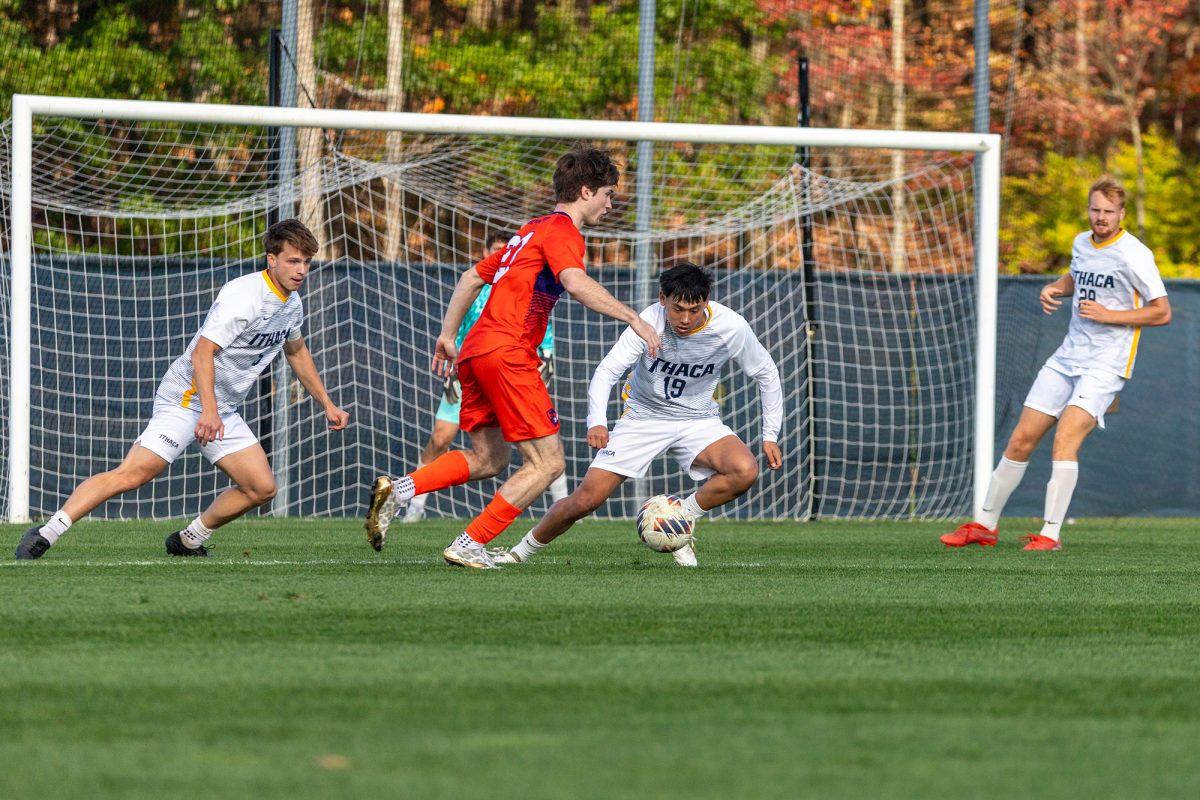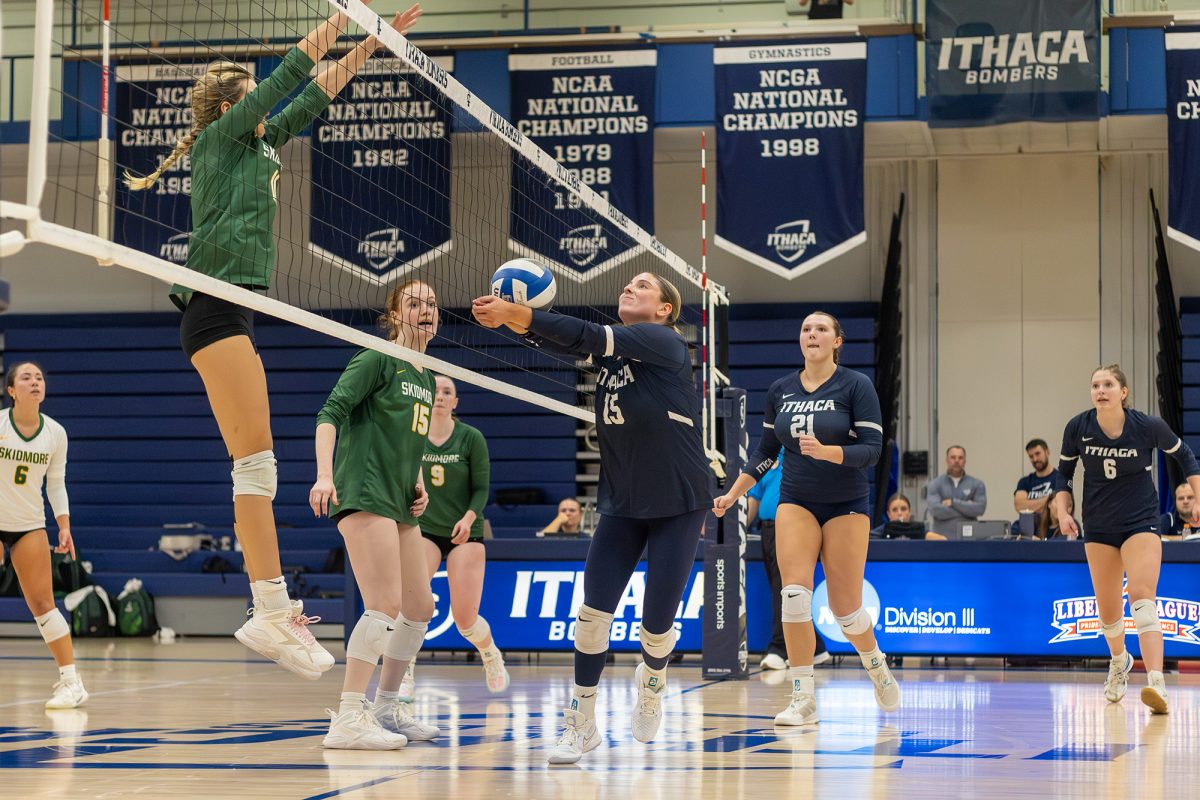The sports world is home to some of the biggest rivalries around. Whether it’s the Yankees and Sox, the Celtics and Lakers, Ohio State and Michigan — they’re all heated battles that go down to the wire.
The Ithaca College men’s rugby club’s biggest adversary isn’t another team, but the college itself. After losing its sanctioning about 16 years ago because of a hazing incident, the club is back and better than ever. Now ranked No. 2 in the National Small College Rugby Organization, the team has advanced to the Final Four of the national tournament after defeating The College of New Jersey this past weekend in Ewing, N.J. But the club is still out to prove to the college that it should be recognized.
“We’re not the same team that we were back when they got sanctioned off,” senior Scott Kamp said. “Not all rugby teams are like that. They have this mind-set that rugby’s drinking and hazing and all that, but we’re trying to show them we’re a different team than that.”
So far the club’s on the right track. After training hard since August and hosting the Sweet 16 in the fall, the club transitioned well to the broken-up schedule that continued to condition and prepare them for the Elite Eight.
Kamp said it hasn’t sunk in yet that the club is one step closer to a national title.
“When we go to Virginia Beach in two weeks — when we’re actually down there — that’s when it’s really going to kick in for us, and we’ll realize how far we’ve made it,” he said.
The team will travel to Virginia on April 28 for the Final Four, where they will go up against Occidental College (Calif.) on April 30. Kamp said because of Ithaca’s weather the club is at a disadvantage.
On the other hand, Kamp said before playing The College of New Jersey the club blew out its opponents by scores of 60–0, 70–0 and defeated Franciscan University 36–0 in the Sweet 16. And with three starters returning from injuries for the Final Four, things bode well for the club.
Kamp said he gives most of the credit to the team’s success to Head Coach Annemarie Farrell, professor of sport management and media, who has experience with the women’s national team.
“Annemarie’s had us out there practicing at 6 a.m.,” he said. “People are like, ‘It’s a club sport,’ but to have a chance to win a national championship is remarkable and something that who knows when the next time this club is going to be able to be in that position and be able to make it this far.”







